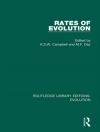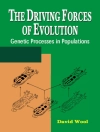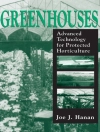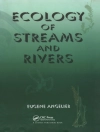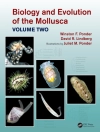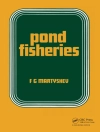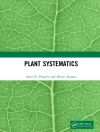This book presents a compendium of advanced research and basic principles/approaches related to vetinformatics. All chapters have explored the role of basic methods of vetinformatics that may be very helpful for students and researchers studying/working in the area of veterinary and animal science and may also serve the purpose of textbook. The latest developments in the field are discussed, and basic concepts are introduced in a simple but comprehensive way to ensure that students/researchers are able to understand the more advanced study in the proposed field. It also provides a comprehensive list of resources used for RNAseq data analysis, metagenomics, GWAS, systems biology and multiomics integration, molecular docking, toxicity prediction, QSAR, molecular dynamics simulation, vaccine designing, and machine learning. This book serves as an invaluable resource for researchers, faculty, and students of veterinary and animal sciences for understanding modern approaches and the application of vetinformatics involved in livestock research. This also focuses to guide map and carry out studies and research in the field of vetinformatics.
विषयसूची
Chapter 1 Introduction to vetinformatics and its application in veterinary science.- Chapter 2 RNA sequencing and data analysis: A revolutionary approach for transcriptome profiling in livestock.- Chapter 3 Metagenomics in Farm Animals: Exploring the Microbial Diversity, Functionality, and Applications.- Chapter 4 Epigenomic insights of model animals and their application in understanding livestock systems in veterinary science.- Chapter 5 Genome-wide association studies: A powerful approach to identify genomic variants for livestock breeding and disease management.- Chapter 6 Single-cell genomics in veterinary science: methods and application.- Chapter 7 Systems Biology: Insights, Advances, and Challenges.- Chapter 8 Systems biology and integration of multi-omics data.- Chapter 9 Vetinformatics approaches in veterinary medicine.- Chapter 10 Vetinformatics for identification of drug targets via integrating multi-omics data.- Chapter 11 Structural modeling of drug target, validation, and binding site analysis for their application in veterinary drug discovery.- Chapter 12 Molecular docking and virtual screening to investigate lead compounds for veterinary drug development.- Chapter 13 Analysis of Drug-Likeness and Toxicity Prediction of Lead Compounds for Veterinary Applications.- Chapter 14 Applications of Molecular Dynamics Simulation and MM-PBSA Methods in Discovery of Veterinary Drugs.- Chapter 15QSAR Modeling and its application in veterinary drug design.- Chapter 16 Vetinformatics in vaccine design for the control of animal diseases.- Chapter 17 Utilizing vet-informatics for developing reverse genetics-based vaccine platforms against RNA viruses affecting poultry and livestock.- Chapter 18 Computational assessment of structural and conformational dynamics of missense mutations on protein structure for veterinary applications.- Chapter 19 Applications of nano-bioinformatics in livestock research.- Chapter 20 Machine learning in veterinary drug discovery.-Chapter 21 Database Resources and Tools for Veterinary Application.
लेखक के बारे में
Prof. Jun-Mo Kim is the group leader of the Functional Genomics and Bioinformatics group at the Department of Animal Science and Technology, Chung-Ang University, Anseong-si, Gyeonggi-do, Republic of Korea. He holds B.S., M.S., and Ph.D. degrees from Korea University, Seoul. He has worked as a Research Professor at the Institute of Life Sciences and Natural Resources, Korea University, followed by postdoctoral studies in animal biotechnology and bioinformatics at the University of Sheffield, Sheffield, UK; the University of Queensland, Australia; and the National Institute of Animal Science, RDA, Jeonju, Republic of Korea. His research interests lie in the areas of molecular genetics and genomics, quantitative genetics, multi-omics integration, systems biology, computational genomics, toxicology, and host-pathogen interaction. He is the Principal Investigator of multiple projects under the Basic Science Research Program of the National Research Foundation of Korea (NRF), funded by the Ministry of Education, Republic of Korea. He teaches bioinformatics and genomics courses to undergraduate, master’s, and Ph.D. students. He has published many research and review papers in related fields. He is a member of various national and international academic organizations and serves on the editorial boards and as a reviewer for several international journals.
Dr. Rajesh Kumar Pathak is a Postdoctoral Researcher in the Department of Animal Science and Technology at Chung-Ang University, Anseong-si, Republic of Korea. He received his B.Sc. from Barkatullah University, Bhopal; M.Sc. from Chhatrapati Shahu Ji Maharaj University, Kanpur; and Ph.D. from Uttarakhand Technical University, Dehradun, India. His research areas include computational drug discovery, vaccine design, computational genomics, systems biology, and toxicology. He has authored several research and review articles in high-repute international journals and has contributed several book chapters. He published an edited book on bioinformatics methods and applications. He serves on editorial boards and as a reviewer for several international journals.



